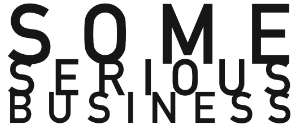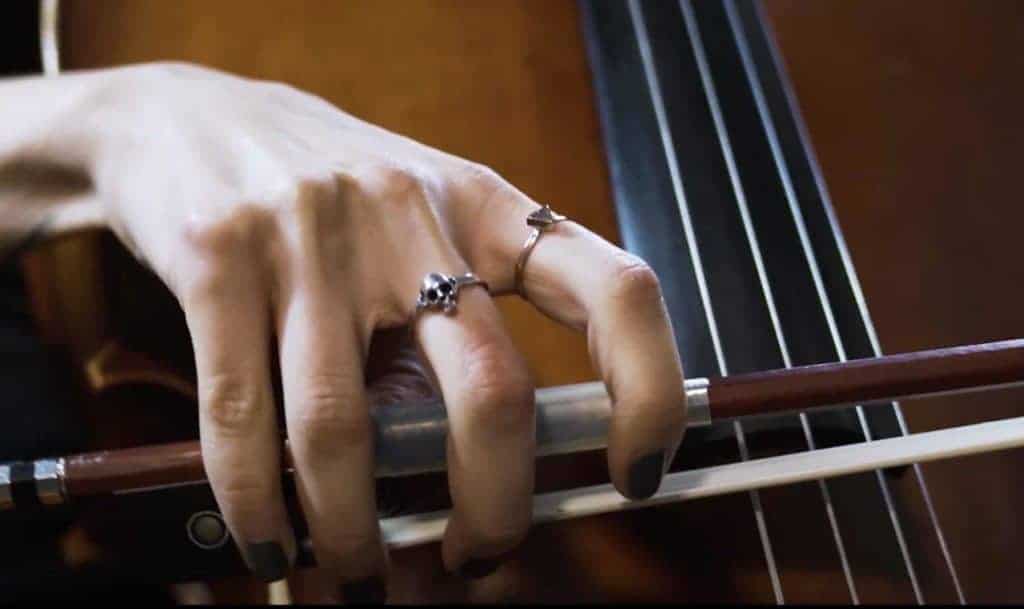And Shares Her Thoughts in Our #FiftyQuestions Series
Composer, performer, and improvisor Mariel Roberts embarks upon an SSB Away artist residency in Hawaii starting March 4th hosted by The Sewell Art Estate in Haiku, Hawaii. Mariel is a classically trained cellist with a Masters degree in contemporary performance. Working both acoustically and with live electronics and fixed media, her work has been categorized as contemporary classical, experimental, avant-garde, electro-acoustic, and free improvisation. She recently released Armament, her fourth solo recording with her own improvisational-based pieces for solo cello and live electronics.
Roberts strives to find new ways to connect her work to the growing political and social consciousness. She’ll use her time on Maui to work on a new solo piano piece commissioned by New York based pianist Conor Hanick, regarded as one of his generation’s most inquisitive interpreters of classical and contemporary music. The impetus for this work is to create a musical environment in which to experience the desperate condition of immigrants in detention centers at the US/Mexico border. The piece uses recordings from within and outside the Imperial Regional Detention Facility (ICE) in Calexico, California. The pianist’s performance material will be derived largely through the field recordings to create a modified aural impression of the acoustic environment captured in the facility.
The vibrant 17-acre Sewell Art Estate is covered in lush vegetation, studded with one-of-a-kind architecture and sculpture, and home to creatives and invited guests. Special thanks to artist Tom Sewell, and Boyd Willat—their generosity makes this residency possible.
What surprises you most about what you are doing right now in your practice? If the nine-year-old you could see you right now, what do you think s/he would think?
I think about this quite often actually! My 9-year-old self would be ecstatic if she could see my life right now. She would be peeing her pants. Even my current self sometimes finds it hard to believe the range of incredible people and projects I get to work with. I feel infinitely grateful for the artistic freedom I’ve been able to have in my practice, and the communities which I’ve been able to connect to through music. I feel constantly surprised by the vastly different directions I’m able to take my musical life in, and that I’ve been able to integrate so many of my interests and joys into what feels like a kaleidoscopic practice.
What emotion as an artist makes you most uncomfortable and why?
The emotion that makes me the most uncomfortable by far is boredom. I have never dealt with boredom well- it’s a running joke with my mom that as a kid I would be really excited for school to end and for it to be summer vacation, and then after one day at home I’d be bored out of my mind and begging her to help me start a project of some kind. I fear boredom in my artistic practice because that signifies a loss of engagement, and if even I am not engaged in my own work, in what way is it meaningful? I am completely fine with the fact that my music does not speak to everybody, but if I am feeling alienated or bored by my own work then it begs the question of why I am making it to begin with. It is totally possible to work through these periods of boredom, but to me that is a significant sign that I need to get a fresh perspective or change direction or method.
What project of yours do you personally consider your most satisfying, and why – regardless of external support or accolades?
The project that feels personally the most satisfying to me at the moment is the last solo album I put out called “Armament.” I released it during the pandemic, which came after an already very difficult period of my life. I was greatly struggling to know what I wanted out of life and music, and to move past a lot of pretty deep fears about myself and my work. That album felt like a project that I had wanted to do but been deeply afraid to do for a long time, which was an album of my own work largely focused around improvisation and electronics. That difficult period pushed me to almost a breaking point and creating that music and actually letting people hear it felt to me like one of the bravest things I have done. I am proud of the way that step towards overcoming fear changed the course of my artistic and personal life.
Do your dark nights of the soul tend to be constructive or destructive to your self-expression?
As a periodic insomniac, the concept of dark nights has a quite literal meaning for me. In both senses of a dark night, I find these periods to be generally constructive. They are difficult, often painful, but I feel like these have been some of the only times in my life when the outside frenzy of the world fades away enough for me to actually look at myself and my work and my priorities differently. Some of my most joyful times have been during these periods of insomnia, when I was able to embrace those still and quiet hours and let go of my attachments and expectations of what I should be or my work should be. I am a person that is deeply influenced by my surroundings and environment, and sometimes I have to be able to step completely away from whatever it is that is occupying the reality of my days in order to get clarity and perspective. These times can be real treasures to me.
What do you feel are the greatest or most tenacious barriers to creating art over an entire lifetime?
I was recently having this conversation with a colleague, not only about barriers to making art over a lifetime but to maintaining a career in art over a lifetime. It’s difficult to construct a balance between maintaining an artistic voice/identity that makes you recognizable as an artist and growing and changing in ways that make your work feel continuously relevant and intriguing. At a certain point, all paths and choices either have to change shape or direction or hit a wall and come to an end. Art has to be meaningful to its creator, and in order to sustain that artist’s professional practice it also needs to be meaningful to the outside world. My nature so far has been to embrace my natural deep curiosity and let that guide my growth, but I think many artists have that nagging fear in the back of our minds that we may in some way “run out” of ideas. Or not have the desire and drive to create in the way we once did. Or for those of us that perform for a living, that people will lose interest in our work. So I guess the short answer to that question is the greatest barrier to overcome in creating a lifetime of artistic practice is to foster growth and curiosity while maintaining the essential “you-ness” that makes your art feel like yours and yours alone.

